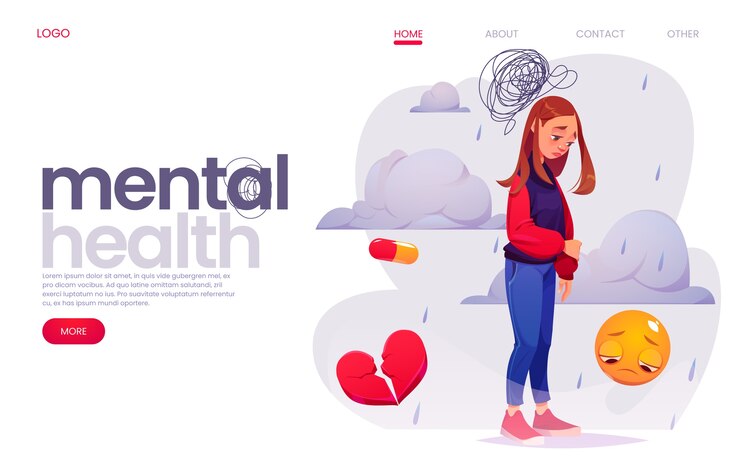How to Handle Cocaine Addiction in the Workplace
Identifying the root causes of alcohol addiction is the first step toward recovery. By digging into what triggers the need to drink, we can tackle the problem head-on. Whether it’s stress, trauma, or peer pressure, understanding these causes helps in finding the right solution.
Exploring these root causes means looking beyond just the habit. It’s about uncovering the deeper issues driving the addiction. With this knowledge, we can create effective strategies to support long-term recovery and a healthier future.
Understanding Cocaine Addiction
Cocaine addiction is a serious issue that affects many people. Understanding cocaine addiction means knowing how this powerful drug impacts the brain and why it’s so hard to quit.
What Is Cocaine?
Cocaine is a stimulant drug that comes from the leaves of the coca plant. It makes people feel extremely energetic and confident, but it also has dangerous effects. Cocaine can be snorted, smoked, or injected, and each method can lead to addiction.
Why Is It Addictive?
The reason cocaine is so addictive is because it interferes with the brain’s natural balance of chemicals. When someone uses cocaine, it causes a rush of pleasure by flooding the brain with dopamine. This “high” is short-lived, leading people to use more of the drug to feel the same effects. Over time, their body gets used to the drug and craves it more, making it harder to stop.
Signs of Addiction
People who are addicted to cocaine often show signs like intense cravings, mood swings, and a change in their daily habits. They might neglect responsibilities or lose interest in activities they once enjoyed.
Getting Help
Understanding cocaine addiction is the first step toward recovery. If you or someone you know is struggling, seeking professional help is crucial. If you or someone you know is struggling, seeking professional help at a traditional or luxury drug rehab can provide a high level of personalized care in a comfortable and serene environment.
There are many resources available to support those on the path to overcoming addiction and leading a healthier life.
Identifying the Signs of Cocaine Addiction

Identifying the signs of cocaine addiction is crucial for getting help early. Recognizing these signs can make a big difference in supporting someone who may be struggling with this powerful drug.
Physical Signs
One of the first things you might notice are physical changes. People addicted to cocaine often have dilated pupils and a noticeably runny nose if they snort the drug. Their weight might drop quickly due to a loss of appetite. They may also have frequent nosebleeds or sores from injecting cocaine.
Behavioral Changes
Behavioral changes are also common. Someone addicted to cocaine might become unusually energetic or talkative, but this is often followed by irritability and mood swings. They may start to act recklessly, neglecting personal responsibilities or relationships. Spending a lot of time alone and being secretive about their activities are also red flags.
Mental and Emotional Signs
Cocaine addiction can also affect a person’s mental and emotional health. You might notice signs like extreme anxiety, paranoia, or sudden mood swings. These emotional shifts can be confusing and distressing for those around them.
Seeking Help
If you spot these signs, it’s important to encourage the person to seek professional help. Early intervention can greatly improve the chances of recovery and a healthier life. Recognizing these signs is the first step toward offering the right support and care.
Creating a Supportive Work Environment

Creating a supportive work environment is essential for helping employees who may be struggling with issues like cocaine addiction. A positive and understanding workplace can make a huge difference in someone’s recovery journey.
Foster Open Communication
The first step in creating a supportive work environment is to encourage open communication. Employees should feel safe discussing their challenges without fear of judgment. Managers can promote this by being approachable and showing empathy. Regular check-ins can also help employees feel supported and valued.
Provide Access to Resources
Another key aspect is offering access to resources. This could include Employee Assistance Programs (EAPs), which provide counseling and support services. Make sure employees know about these resources and how to use them. Providing information on local support groups and treatment options can also be beneficial.
Encourage Work-Life Balance
Promoting a healthy work-life balance is crucial. Encourage employees to take breaks, use vacation time, and manage stress effectively. A balanced schedule can help reduce the pressures that might contribute to substance abuse.
Create a Non-Judgmental Atmosphere
Finally, build a non-judgmental atmosphere where everyone feels respected. Avoid making assumptions or stigmatizing employees who may be dealing with addiction. Instead, focus on providing encouragement and understanding.
Addressing Cocaine Addiction: Steps to Take
Addressing cocaine addiction requires a thoughtful and proactive approach. If you or someone you know is struggling with this addiction, taking the right steps can lead to successful recovery and a healthier life.
1. Acknowledge the Problem
The first step in addressing cocaine addiction is to acknowledge that there is a problem. Denial can be a major barrier to getting help. Openly admitting that there is an issue is crucial for starting the recovery process.
2. Seek Professional Help
Next, seek professional help. Contact a healthcare provider or addiction specialist who can offer guidance and create a treatment plan. This may include counseling, therapy, or medical treatment to manage withdrawal symptoms and cravings.
3. Build a Support System
Building a support system is vital. Reach out to friends, family, or support groups who can offer encouragement and understanding. Surrounding yourself with supportive people can make a significant difference in the recovery journey.
4. Make Lifestyle Changes
Making positive lifestyle changes can also aid recovery. This includes finding healthy ways to manage stress, such as exercise or hobbies, and avoiding triggers that may lead to cocaine use.
5. Follow Through with Treatment
Finally, follow through with the treatment plan and attend all therapy sessions and support meetings. Consistency is key to overcoming addiction and maintaining long-term sobriety.
By taking these steps, you can effectively address cocaine addiction and pave the way for a healthier, more fulfilling life.
Legal and Ethical Considerations
Addressing cocaine addiction comes with important legal and ethical considerations. It’s essential to understand these aspects to ensure a fair and effective approach to treatment and support.
Legal Issues
When dealing with cocaine addiction, legal issues can arise, especially if the drug use involves illegal activities. It’s crucial for employers and healthcare providers to be aware of laws regarding privacy and confidentiality. For instance, laws like the Health Insurance Portability and Accountability Act (HIPAA) protect patient information, ensuring that personal details about addiction are kept private.
Ethical Concerns
Ethical considerations focus on treating individuals with respect and dignity. This means avoiding discrimination and judgment based on someone’s addiction. It’s important to provide support without stigmatizing or penalizing employees who seek help. Creating a non-judgmental environment helps individuals feel more comfortable coming forward and seeking the assistance they need.
Workplace Policies
In the workplace, having clear and fair policies regarding substance abuse is vital. These policies should outline how addiction issues will be handled, including support options and potential disciplinary actions. Transparent and supportive policies encourage employees to seek help without fear of losing their jobs.
Balancing Support and Accountability
Balancing support with accountability is also key. While it’s important to offer help, maintaining clear expectations and consequences helps individuals stay on track with their recovery.
By understanding these legal and ethical considerations, you can support those struggling with cocaine addiction in a way that is both effective and respectful.
Monitoring and Follow-Up
Monitoring and follow-up are essential when addressing cocaine addiction. These steps ensure that individuals stay on track with their recovery and receive the ongoing support they need.
Regular Check-Ins
The first step in effective monitoring is conducting regular check-ins. This means having scheduled meetings or appointments with healthcare providers or counselors. These check-ins help track progress, discuss challenges, and adjust treatment plans if necessary. Regular communication keeps individuals engaged in their recovery journey.
Tracking Progress
Tracking progress involves keeping detailed records of the individual’s milestones and setbacks. This could include documenting changes in behavior, improvements in health, and achievements in personal goals. Tracking helps identify patterns and areas that may need more focus or adjustment in the treatment plan.
Encouraging Support Networks
Encouraging the use of support networks is another important aspect of follow-up. Support groups, family, and friends play a critical role in maintaining recovery. Regularly engaging with these networks provides additional encouragement and accountability.
Addressing Relapse
Relapse can be a part of the recovery process, so it’s important to have a plan for addressing it. If a setback occurs, it’s crucial to stay calm and seek additional support. Adjusting the treatment plan and reinforcing positive habits can help get back on track.
Maintaining Long-Term Recovery
Finally, ongoing follow-up is key to maintaining long-term recovery. Continued engagement in therapy and support groups helps reinforce commitment and prevents future issues.
By focusing on monitoring and follow-up, you can ensure that recovery from cocaine addiction remains on track and effective.
Conclusion
In conclusion, identifying the root causes of alcohol addiction is key to successful treatment. By addressing the underlying issues, we can pave the way for a more effective recovery process. Understanding and tackling these causes not only aids in overcoming addiction but also promotes overall well-being.









